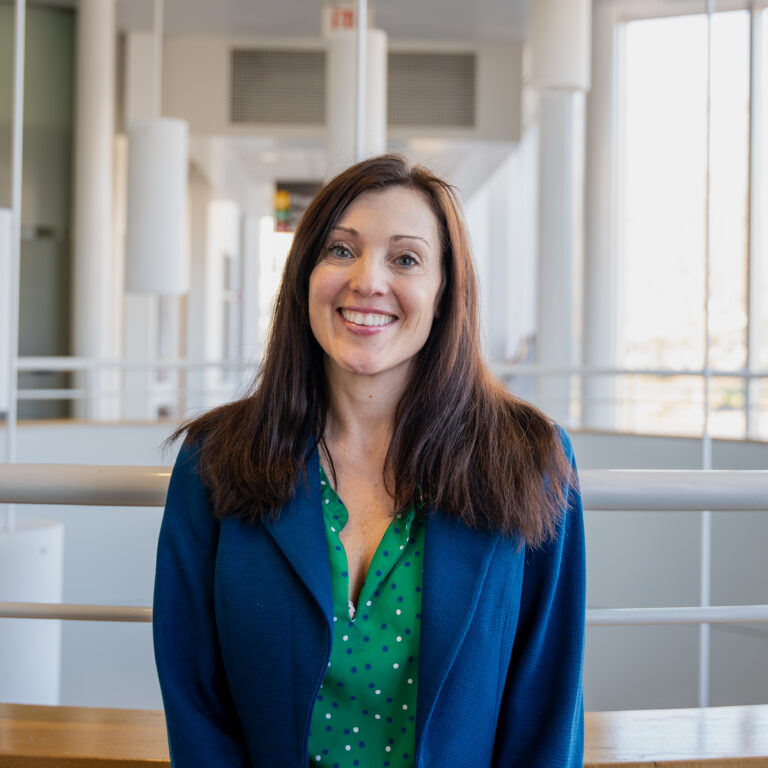
Clinical Counseling Associate Program
Overview
We have a multidisciplinary team working together to provide relevant professional development growth opportunities for clinicians with associate licensure in counseling or social work, as well as future psychologists working on independent licensure. Our fast paced center is housed within the Campus Health Center at NC State University. The center values training, mentoring, and support for clinicians who are pursuing licensure. The strengths of our center include a large dedicated staff with diverse areas of expertise, a commitment to professional development and growth, and flexibility to help clinicians meet their own professional goals while gaining experience similar to generalist clinicians working in college counseling.
For more information or questions, please contact:
Assistant Director for Training
About the program
The Clinical Counselor Associate position is designed to prepare early career individuals for a staff position in a University Counseling Center working as part of a multidisciplinary team. The position is designed to enable clinicians with 0-5 years of experience to gain additional experience and clinical hours to fulfill requirements for licensure in the state of North Carolina. This experience provides a series of training (risk assessment, leadership and professional identity development) germane to this provisional licensure stage of development. A cohort type approach is utilized, and clinical supervision will be provided.
We anticipate 1 position before the end of Summer 2025. Check jobs.ncsu.edu.
Clinical Counseling Associate Information Sessions
Attend an upcoming virtual Zoom session about the program on Monday, June 16, at 2 p.m. with Dr. Michelle Bruno. Additionally, there is a virtual Zoom drop-in session with current and former CCAs on Monday, June 16, at 3 p.m.
Training Philosophy
The Counseling Center prioritizes training as a whole, emphasizing opportunities for professional development and continuing education. The program for Clinical Counseling Associates emphasizes opportunities that reflect the developmental and individualized needs each clinician brings. We believe in flexibility that can adapt to evolving needs of clinicians.
Cultural humility is a core value here at NC State’s Counseling Center. Clinical Counseling Associates are encouraged to explore their beliefs, attitudes and skills in order to assess and increase their cultural awareness, cultural humility, and anti-racist practices. Furthermore, the emphasis placed upon personal understanding as part of professional development may require that Clinical Counseling Associates be asked to consider issues that are somewhat personal in nature. Every effort is made to provide a safe and nurturing environment which respects disclosure and protects Clinical Counseling Associates’ confidentiality.
In support of the desire to foster cultural awareness, cultural humility and anti-racist practices, the Counseling Center is committed to developing training for staff. The Counseling Center recognizes that factors such as race or ethnicity, gender, socioeconomic status, sexual orientation, religion, and range of ability affect college students’ lives and sometimes present unique challenges. The Counseling Center values each student’s individuality and commits to welcoming all people with respect and sensitivity. Counseling Center staff also attends to their own professional development by participating in training and programs designed to enhance their understanding of the needs of diverse people.
Model of Training
In alignment with the master’s and doctoral level training programs, the Clinical Counseling Associate Position is grounded in the Practitioner-Scholar Model. As practitioners, we value the learning that comes through direct service experiences and thoughtful self-reflection. As scholars, we recognize the importance of theory, research, intentionality, and critical thinking.
Sample weekly schedule
This is a full time, 40 hours per week position. To honor the goals and needs of Clinical Counseling Associates, individual work plans are constructed with each associate and the Training Director at the start of the position (and revised as needed). Associates will provide an average of 20 direct service hours per week, which can include triage, individual counseling, group counseling, and outreach etc.
Your time can be conceptualized in three categories:
- direct service
- training/supervision
- administrative work
Direct Service Experiences
Individual therapy
We consider personal counseling of individuals the primary direct service practice. Clinical Counselor Associates will have the opportunity to work with students with varying presenting issues. While our center works primarily within a short-term model, all staff (including this position) are encouraged to work with two longer-term clients. Clinical Counselor Associates may have the opportunity to do some couples counseling work either individually or in a co-therapy situation.
Group therapy
Groups are an integral part of counseling service in our center. We have a variety of groups offered at any given time, with a combination of closed therapy groups, open therapy groups, drop-in groups, and psychoeducational groups and workshops. We are a busy center and find groups to be an excellent opportunity to provide support while students are waiting for an Intake, in between sessions, as individual work is finished, or in some cases instead of individual therapy. Typically, Clinical Counselor Associates will co-lead a group with a permanent staff member and will have an opportunity to do a different group each semester. Clinical Counselor Associates typically meet with their group co-leader on a weekly basis to plan and process the group each week. As Clinical Counselor Associates move closer to licensure, there are opportunities to develop their own groups, co-lead with a masters trainee, and/or co-lead with another Clinical Counselor Associates or other staff member if that is appropriate.
Triage
Our center uses a triage model to assist in determining student’s level of risk and urgency for which they need to be seen. Triage is used as a screening and referral tool. While we have Triage Clinicians who do the bulk of Triage, we include this experience as part of the Clinical Counselor Associates program as it is a valuable skill that may be expected of them in future positions. Training for Triage and opportunities to observe Triage clinicians occur early in Clinical Counselor Associate program experience. Our Triage system offers back-up for consultation and support in crisis situations.
On-Call
All counselors at our center cover after-hours on-call. Clinical Counselor Associates will be trained to participate in the on-call system, with back-up available if consultation is needed. This will not occur until at least the second semester of the program.
Outreach
Our center does a significant amount of outreach programming for the campus community. This includes screening days, tabling events, Residence Life training and programs, classroom and campus organization presentations, as well as in-house programs. These programs cover a large variety of topics, from time and stress management to healthy sleep and healthy relationships. Our center also offers QPR (Question Persuade Refer) training to students and staff. Outreach is considered an essential skill for clinicians in a university setting. As such, we require Clinical Counselor Associates to participate in outreach programming. Outreach programs and projects will offer additional exposure to a range of interventions with diverse populations. If there are special populations a CCA would like to work with, outreach is another way to gain this experience.For those who have a special interest in outreach there is opportunity to work closely with Prevention Services and other staff tied to outreach in order to gain further experience.
Consultation
Staff regularly consults with students, faculty, staff, parents, off-campus mental health providers and others. Most consultation requests come through phone calls, on-call, and walk-ins. Other times, consultation will be around a particular student or issue of concern. Clinical Counselor Associates will participate in consultation as circumstances arise and back-up will be available as needed. Consultation will offer further opportunities to work with diverse populations and student issues.
Psychiatric Consultation
Our students have access to time-limited psychiatric services, including evaluation and medication management. Our staff can refer students to our in-house psychiatrists, and consult with psychiatrists about students. Additionally, there may be some opportunities to sit in with students during the psychiatric evaluation when a student is referred.
Academic Services
Our center is involved in some academic processes on campus, including withdrawal and course drop requests. While Deans make decisions about granting exceptions to academic policy, staff are expected to provide assistance in assessing psychological issues that may impact a student’s performance in classes. We have staff that take the lead in this area, but all staff may be required to participate in this process at times, particularly if a student being seen by a staff member needs to request a lower course load or to withdraw from the semester entirely. Academic policies and procedures are covered during Orientation in the summer.
Training/Supervision Experiences
Orientation
In order to prepare to see clients and function as a Counseling Center staff member, Clinical Counselor Associates will be introduced to Center modes of service delivery via an orientation process. This orientation will take place over the first 4-6 weeks of beginning the position. Orientation will consist of sessions in which Clinical Counselor Associates will learn more about policy and procedure regarding Center functions, and will be given time and space to process any questions they might have. Clinical Counselor Associates will also be introduced to the Center’s electronic record system (Titanium), will engage in orientation to available benefits, will have an “Onboarding” session in which important personal information is entered into the university system (i.e. banking information for direct pay deposit) and will have a chance to meet with the Administrative Team here at the Center.
Finally, orientation is also a very important piece of training in that Clinical Counselor Associates will be exposed to many different staff here in the Center; thus, beginning the process of integration into the team through learning about staff interests and areas of expertise.
Supervision
Individual Supervision
Clinical Counselor Associates receive 1 hour of individual/triadic supervision per week with their primary supervisor. During the first year of employment, the Clinical Counselor Associates have one primary supervisor, who is a member of our administrative team. As the Associates get closer to licensure, those interested in in seeking supervision in a specialty content area (i.e. Substance Abuse, Eating Disorders, Trauma work, etc.) can obtain a secondary supervisor. In this case, supervision with the secondary supervisor would occur whether weekly or every other week.
Group Supervision
Group Supervision meets for 2 hours every other week in accordance with North Carolina Board of Licensed Clinical Mental Health Counselors guidelines to discuss clinical issues including: challenging cases, disposition issues, professional concerns, multicultural or ethical issues salient to a particular clinical situation and various treatment approaches. Clinical Counselor Associates are encouraged to participate in discussions and to informally present cases throughout the year. Group supervision is typically facilitated by the Training Director.
Direct Report/Administrative Supervision
During the first week of each month, Clinical Counselor Associates will attend a group meeting with all associates and the training director. Individual meetings between each Clinical Counselor Associates and the training director will occur during weeks two, three, and four of the month.
Training Opportunities
Using consultation with the Counseling Center training team and needs assessments, a series of training sessions will be offered twice a month by center staff. Sample topics include building self-efficacy in risk assessment, and leadership development.
In addition to the training that is embedded in the structure of this position, you will receive professional development funds to attend conferences or participate in training relevant to your work at the Counseling Center. You will also receive free continuing education opportunities that are offered to the entire staff several times per year.
Administrative Experiences
Time is allotted for CCAs to engage in administrative activities/non-direct service. Examples include preparation for supervision, preparation of outreach materials, attending weekly staff meetings, participating in a treatment team or committee, etc.
